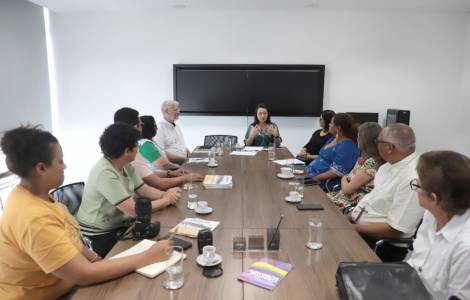
Brasilia (Agenzia Fides) - "An important role of this Commission is listening. We hear the cry of anguish of our sisters and brothers who experience various forms of violence. We have heard the cry of hunger, the absence of public policies, we have heard many cries. Listening is something to which Pope Francis has drawn our attention. At this moment in which there is a sign of hope, we must be more attentive to listening". With these words the Bishop of Pesqueira, Monsignor José Luiz Ferreira Salles, summarizes the meeting of the Special Episcopal Commission for the fight against human trafficking (CEPEETH) of the National Conference of Bishops of Brazil (CNBB) which took place in Brasilia in past days. The three days of the meeting were dedicated to reflecting on the actions carried out and planning those for the year 2023. The current situation of the country which interferes with structural violence was analyzed and, consequently, reflected in the actions to combat human trafficking. The Commission members traveled to the Ministry of Human Rights and Citizenship, where they were received by the Chief of Cabinet of the Executive Secretariat, Laura Zacher, and by Rita Cristina de Oliveira, Executive Secretary of the Ministry. In a letter, CEPEETH proposed the resumption of commitments to combat human trafficking in the country. During the meeting, the new Bishop of Roraima and President of the Commission, Msgr. Evaristo Pascoal Spengler, explained that in addition to making society aware of the issue, the Church participates in online training courses with pastors, organizations and institutions that promote initiatives to combat human trafficking. Sister Eurides Alves de Oliveira underlined that "if all this effort and work of the Church and civil society is not accompanied or integrated into a government program with public policies and structures, the result is fragmentary".
The six points presented by CEPEETH are broad and concern the following topics: review, with broad participation of society, the current Plan, therefore to develop and implement the 4th National Plan for the Fight against Human Trafficking; ensure the budget for the various public policies to combat human trafficking, with particular attention to the following situations: sexual exploitation of children, adolescents and women, child labour, domestic slave labour; resume the cross-sectoral governance of the National Anti-Trafficking Policy with the participation of the various ministries and secretariats; creation and activation of centers to combat human trafficking in states and municipalities, create State Commissions to combat slave labor (Coetrae) and assistance outposts for migrants, refugees and victims of human trafficking, in airports, ports and on the country's highways; support the implementation of processes, permanent campaigns and actions to combat human trafficking in the three planned lines of national policy: prevention, assistance and accountability; ensure the participation of government and civil society in the planning, monitoring and process management spaces. Laura Zacher welcomed the requests and stressed that social participation is a government priority. "It was a meeting of hope – commented Archbishop Evaristo Pascoal Spengler -. We realize that the involvement and initiatives of the Commission have contributed every year to raising awareness in society on this issue. Our visit to the Ministry of Human Rights was very positive. I see it as a sign of hope, because we know that human beings are created by God and deserve respect, no one can use human beings to profit from them, we must do everything possible so that they have the dignity and respect for the daughters and sons of God". (SL) (Agenzia Fides, 8/2/2023)
ASIA - Religious deception in human trafficking: Victims passed off as "pilgrims" and "missionaries"
OCEANIA/AUSTRALIA - Appeal of 'Catholic Mission': “No” to destructive violence and hatred in society
 ASIA/VIETNAM - Vietnamese Catholic communities stand alongside women in need to combat mass abortion
ASIA/VIETNAM - Vietnamese Catholic communities stand alongside women in need to combat mass abortion